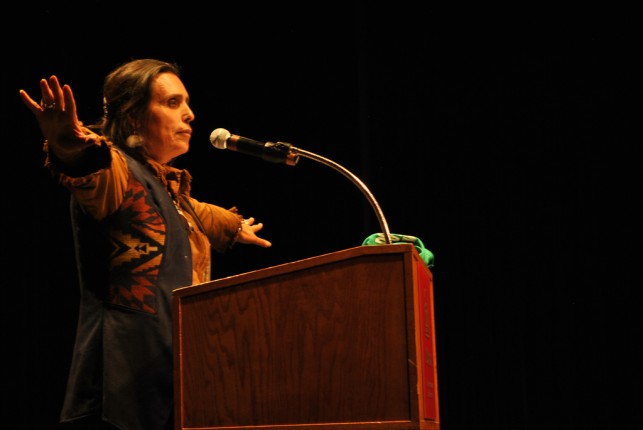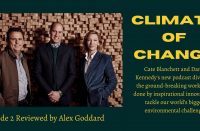Power Shift aims to build an environmental and climate justice movement that can transform our society, so that our future can be enjoyed by everyone, not only those who can afford it. Power Shift is organized by youth for youth and aims to mobilize passionate youth from affected communities and various sectors of civil society to explore multiple ways of taking action and work to develop each other’s capacity and abilities.
Power Shift aims to build an environmental and climate justice movement that can transform our society, so that our future can be enjoyed by everyone, not only those who can afford it. Power Shift is organized by youth for youth and aims to mobilize passionate youth from affected communities and various sectors of civil society to explore multiple ways of taking action and work to develop each other’s capacity and abilities.
Read the Day One update first if you haven’t yet. Day Three is coming soon!
Day Two: Saturday, October 27
Most of the thousands of words of wisdom I heard today fall within three key lessons:
1. We need transformative change on a systemic level to have any kind of useful response to climate change and continue living on this planet.
2. We need to be organizing at a very grassroots level within our communities to build a large enough movement to create the pressure needed for change.
3. The stories that have dominated and shaped our society for decades are coming undone. The cracks are starting to show.
1. Transformative change on a systemic level
This manifested in a couple of ways. One, that in order to save the planet, we need to fundamentally change our way of life, which right now is defined by capitalism’s demands for infinite growth. In Harsha Walia’s words: “You can’t have a good economy on a dead planet. We need to think about de-industrialization.” Winona LaDuke, Anishinaabe author, orator and activist, argued that defeating one development project at a time gets us almost nowhere, because they just pop up again somewhere else. Instead, “we have to deal with the systemic issues of a predator society.”
I would also include under this ‘lesson’ the need for the climate justice movement itself to hold an intersectional, multi-issue analysis. In a Canadian context this particularly means that we need to see the connections between capitalism and colonialism. The infinite growth of capitalism is almost always made possible by “accumulation by disposession” – the attainment of resources and land by theft and violence, often from indigenous peoples – as explained today by Sharmeen Kahn.
An intersectional and multi-issue analysis is also important because of the unequal impacts of both climate change and capitalism. I’ll quote Harsha again here: “It’s impossible to talk about climate change without talking about indigenous self-determination, because extractive processes causing climate change predominantly take place on indigenous lands.”
2. We need community-based, grassroots organizing
Jamie Biggar and Matthew Carroll of Lead Now described the hero’s journey as it relates to the role of activists. We experience a call to action that signals a departure from society, a break from the norm. A personal journey or struggle then prepares us to return to our communities and lead them to take action and create change. For many of us, including Winona LaDuke, that personal journey is largely through the education system. The important thing is being able to take that education back to our communities. LaDuke described how the reason she can bridge her academic background with her work in her community is that she is fully a part of that community: “everybody in my community can talk to me.”
Organizers from the Quebec student strike, the Canadian Federation of Students, and the Canadian Union of Postal Workers also pointed to the importance of educating and agitating within the communities to which you belong. Showing the facts to decision-makers in Parliament isn’t working. Scientists and other academics aren’t convincing the right people, or enough people. We need a big enough movement that it can’t be ignored, and to get there, all of us need to be talking to people in our communities, on the ground level, about how climate change affects them and what they can do about it.
A few speakers, including Naomi Klein, emphasized that people will only act if they feel that their actions will make a difference, and if they can see the benefits now, not just for future generations. It’s our job as members of the environmental movement to help them see those benefits.
3. The dominant stories of our time are coming undone.
Jamie and Matthew from Lead Now described how we are in what Matthew Meade calls an ‘end time,’ a period in which the dominant stories in society are increasingly clearly not true. The process of realizing that our dominant narratives, such as capitalism and our relationship to the earth and its resources, are disconnected from reality is hard and disturbing and generally people either embrace denial, or make a hero’s choice and begin to write new stories.
Biggar explained that there is a special role for a generation living through an end time: to be a bridge and hold the old stories in one hand and the new stories in the other, and link them together. This generation’s journey, then, is about figuring out new stories and bringing them back to society – and doing this without being arrogant.
Here are some of the stories that we widened the cracks in today:
A. That we can either have a good economy or save the environment, but we can’t do both. That the economy will fail if we save the environment.
The economy will fail if we don’t plug the leaks: the roughly 50% of energy lost in transmission from point of production to point of use. Spending most of our money outside of our communities, including on food we could grow within our communities. The billions of dollars in subsidies to the fossil fuel industry (let alone their regular revenues).
B. That wanting to address climate change in a substantive way is “radical” or “extremist.”
BIll McKibben pointed out in his keynote that all we’re asking for is for the world to be the same as it’s been for 10,000 years. We’re the conservatives. The oil industry CEOs who “wake up in the morning willing to make massive profits by altering the chemical composition of our atmosphere” are the real extremists.
C. That environmentalism is something only rich white people do.
McKibben told members of the media after his keynote that this is the biggest lie he hears about the environmental movement. His experience working in 188 countries with 350.org says that all kinds of people in all kinds of socioeconomic situations are engaged and fighting for climate justice.
The idea that only rich white people have the time to worry about the environment because other people are busy worrying about other things completely erases the fact that everyone other than rich white people are actually far more impacted, or at risk of being impacted, by climate change. Maybe we need to reconsider what we’re recognizing as environmentalism.
Writing new stories
The really exciting thing is that we get to write the new stories – but we need to start thinking more about what we want, not just what we don’t. Naomi Klein argued tonight that our collective imaginations have been atrophied by three decades of being told that neoliberalism is the only model and being actively discouraged from envisioning any other direction for society. Sharmeen Kahn had her workshop participants do exactly that: envision what they would want to see in a non-capitalist society. Physical therapy for our atrophied imaginations.
We all need to start exercising our imaginations so we can write the stories that will shape the next age of history.
Winona LaDuke knows what she wants for her people: “I want dignity. Food that we know where it came from. Energy that didnt come at the price of someone else’s ecosystem.”
What do you want?
Bonus: a few of my favourite quotes from today.
From the IEN’s Clayton Thomas-Muller:
“Jesuit priests in black robes came into our [indigenous] communities offering a quick fix to the woes of colonialism by changing the way indigenous peoples related to the Creator. There was no separation of Church & State then. Now, CEOs in black suits come into our communities offering a quick fix to the woes of capitalism by changing the way indigenous peoples relate to the sacred Mother Earth. Today, there is no separation of Oil and State.”
From 350.org’s Bill McKibben:
“We’re either going to break the power of the fossil fuel industry, or they’re going to break the planet.”
From Winona LaDuke:
“Let’s be the people who want to be able to live here for another 1000 years.”
You can watch the very rough video from the live feed here – start at 36:00 to save yourself some time and trouble.
Laura is a past A\J managing editor. She has an MA in Communication Studies from Wilfrid Laurier University, is an organizing aficionado, lackadaisical gardener, and former musical theatre producer. @inhabitings













